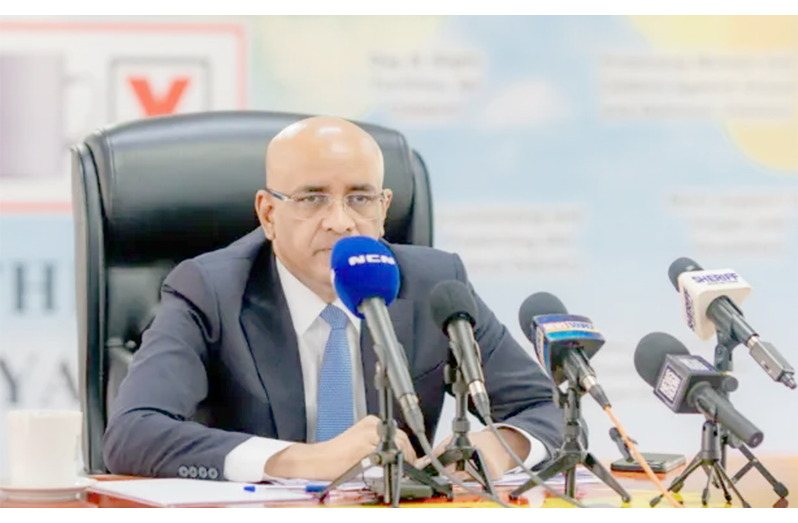-as gov’t moves to fulfil manifesto promises, solve ‘real’ problems, Dr. Jagdeo says
AS the government moves swiftly to fulfil its key manifesto promises, including job creation, bolstering healthcare, education and community development, Vice-President and People’s Progressive Party (PPP) General Secretary Dr. Bharrat Jagdeo has stated that the 2026 national budget will focus on solving real problems.
He made this announcement during a press conference on Thursday at Freedom House, where he told reporters that the government has a “great deal” of work to do in order to ensure that budgets are oriented towards solving problems that our people encounter and to deliver on the promises.
He went on to say that there will be a different approach to budgeting, noting that people will have to justify their expenditure through programmes, and the objective of each programme in every ministry and every region.
He stated that budget 2026 will come early, noting that shortly, President Dr. Irfaan Ali will make a number of announcements that will not only positively impact the lives of many people, but will be consistent with the party’s manifesto promises.
Moreover, he stated that constructing a structured migration policy is on the government’s agenda, adding that discussions have been ongoing for some time.
“But given recent developments and ongoing discussions over the years, we are also prioritising the creation of a migration policy,” he said.
He also spoke about the implementation and distribution of the electronic identification system, which will register every migrant and every Guyanese citizen.
“So, every person in Guyana will have a card with biometrics, their facial recognition, everything there on it. If you don’t have that card, it’s hard to survive in this country. You can’t be working because the employers, will face serious penalties, when they check the workers and they don’t have that card. To open a bank account, you need a card of that nature [and] to remit money to another country,” Dr. Jagdeo said.
The Vice-President added that with this large-scale implementation in place, the government will be able to keep the country safe.
Additionally, he stated that there will be a structured legal framework governing the rights for migrants.
He said: “We want people to come and work because we need that, but they can’t change the nature of our society, and we’ve made it clear that we would have to think about people who come here and maybe they can have residency but not voting rights. This would be a debate that we’ll have to have, maybe in the constitutional reform process, but also at the national level, about how much rights we’re prepared to give to people who come here, given that we want to preserve our country for our people too.”
President Ali was the first to receive his E-ID back in August.
The biometric cards will not only offer citizens preferential treatment in certain areas but will also strengthen border control by monitoring who is entering the country.
The cards will be important for daily transactions, including opening bank accounts, and will be a critical part of Guyana’s wider digital transformation agenda.
Already, the government has begun the rollout of several innovative technology initiatives aimed at improving access to basic services, which has seen the country heading into a new era with several digital and artificial intelligence-led platforms aimed at improving access to government services and enhancing security.
These policies and other national strategies, including the construction of the zero-interest development bank signify “weighty issues,” which will have major impact on Guyana’s future.
“These are not short-term matters—they will impact generations of our people,” he stated, adding: “And only a party like the PPP, with its depth of experience and clear vision, can manage such a transformative agenda responsibly.”





.jpg)








